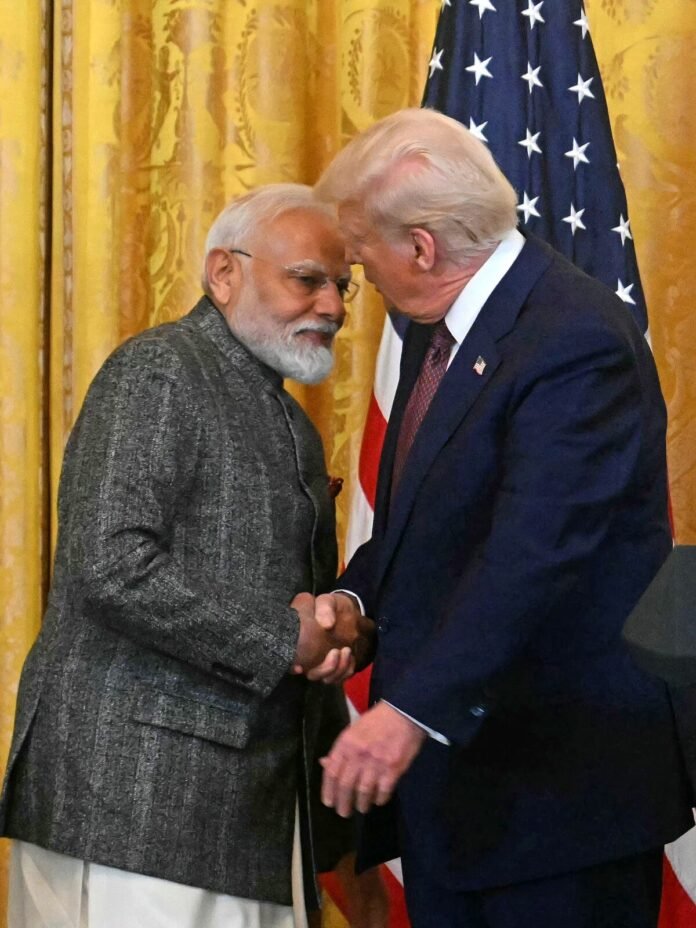The United States has taken a significant step toward implementing the long-pending India-US civil nuclear deal by granting regulatory clearance to Holtec International for building and designing nuclear reactors in India. The US Department of Energy (DoE) issued the approval on March 26, allowing Holtec to transfer nuclear technology to Indian firms, including Larsen & Toubro (L&T) and Tata’s nuclear subsidiary.
The clearance marks a major breakthrough in the 2008 civil nuclear agreement between the two nations, which had been stalled due to regulatory and liability concerns. With this decision, Holtec can now collaborate with Indian companies to advance nuclear energy development under the safeguards of the International Atomic Energy Agency (IAEA).
The approval pertains to a regulation known as “10CFR810,” which governs the transfer of nuclear technology and expertise from US firms to foreign entities. The DoE’s authorization will enable Holtec to work with Indian partners on designing small modular reactors (SMRs) and other advanced nuclear technologies.
Indian officials have welcomed the move, calling it a step toward strengthening the country’s clean energy ambitions. The Indian government has been actively pursuing nuclear energy as a key component of its strategy to reduce carbon emissions and meet growing power demands. The involvement of private firms like L&T and Tata in the nuclear sector is expected to accelerate technology development and infrastructure expansion.
The India-US nuclear deal, originally signed nearly two decades ago, had remained largely dormant due to various technical and policy hurdles. The latest clearance signals renewed momentum in bilateral energy cooperation and paves the way for more investments in nuclear power projects.
Industry experts believe this approval will boost confidence among global investors looking to participate in India’s nuclear energy sector. It also underscores the deepening strategic ties between India and the US in critical technology areas.
With Holtec’s expertise in SMRs and nuclear waste management, India could see a significant push toward modernizing its nuclear infrastructure. The development also aligns with India’s goal of achieving 500 GW of non-fossil fuel-based energy capacity by 2030. As both nations move forward, the focus will remain on regulatory compliance and ensuring the highest safety standards in nuclear operations.
Holtec International’s regulatory clearance marks a transformative moment for India’s nuclear energy sector, unlocking long-awaited opportunities for collaboration with US firms. The approval permits the company to share its advanced reactor technology with Indian partners, a move expected to drive innovation and efficiency in the country’s nuclear program.
This decision comes as India looks to expand its nuclear power capacity to meet surging energy demands while reducing dependence on fossil fuels. With Holtec now cleared to work with Indian corporations, the country can accelerate its adoption of small modular reactors (SMRs), which offer scalable, cost-effective, and safer alternatives to traditional large-scale nuclear plants.
Experts suggest that this move could pave the way for further partnerships between Indian and American companies in the nuclear domain. Beyond infrastructure development, the collaboration is expected to enhance India’s expertise in nuclear safety, waste management, and reactor maintenance—key aspects of sustainable nuclear energy deployment.
The clearance also reflects growing confidence in India’s nuclear regulatory framework, which has evolved significantly in recent years. As part of the agreement, all nuclear projects under this deal will be subject to strict oversight from the International Atomic Energy Agency (IAEA), ensuring adherence to global safety standards.
Industry analysts believe this regulatory breakthrough could encourage other US-based nuclear firms to explore similar collaborations in India. With a robust industrial base and increasing policy support for nuclear energy, India presents an attractive destination for nuclear technology investments.
Beyond commercial benefits, the agreement has strategic significance, reinforcing India-US ties in high-tech and clean energy sectors. As the world shifts toward sustainable energy solutions, the ability to harness nuclear power efficiently will be a crucial factor in India’s long-term energy security.
The Indian government is expected to fast-track necessary approvals to facilitate Holtec’s partnerships with local firms. With the groundwork now in place, India’s nuclear power expansion is set to gain fresh momentum, positioning the country as a key player in global nuclear energy development.

